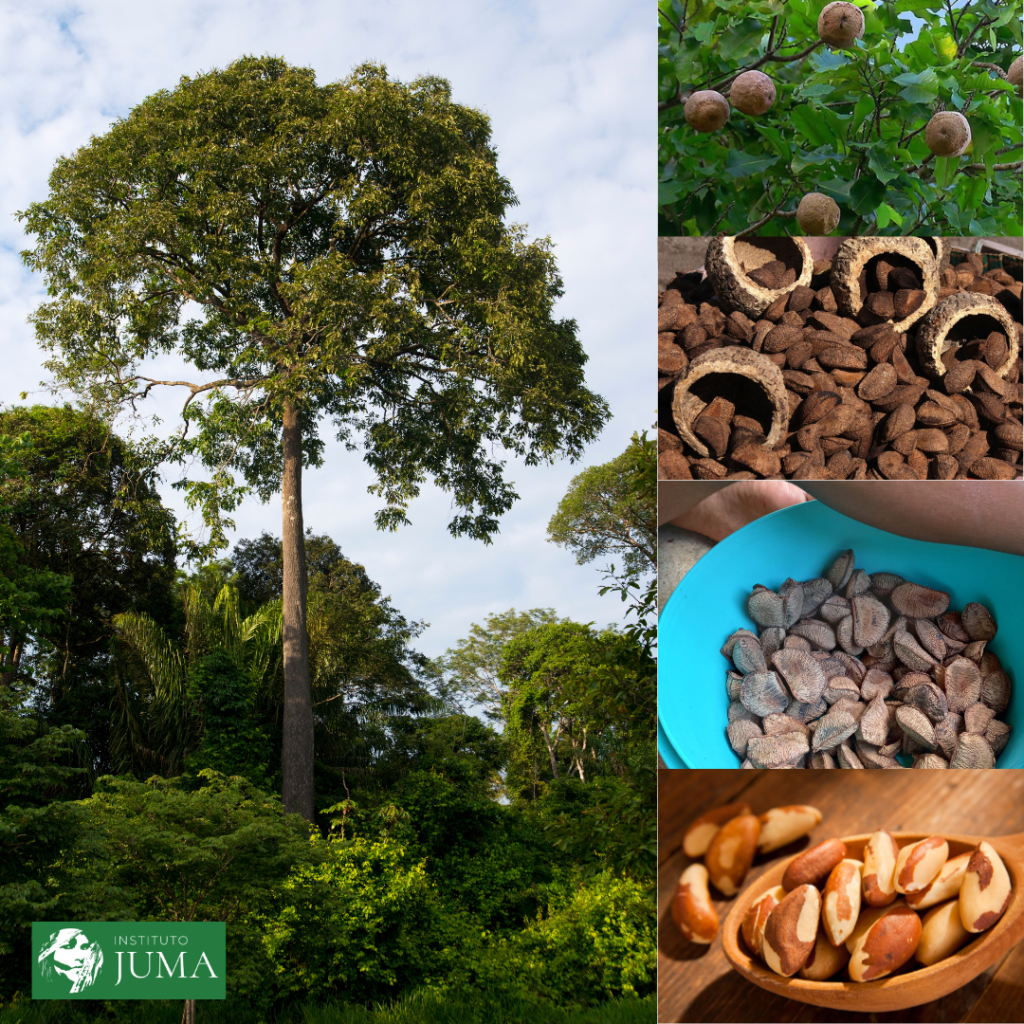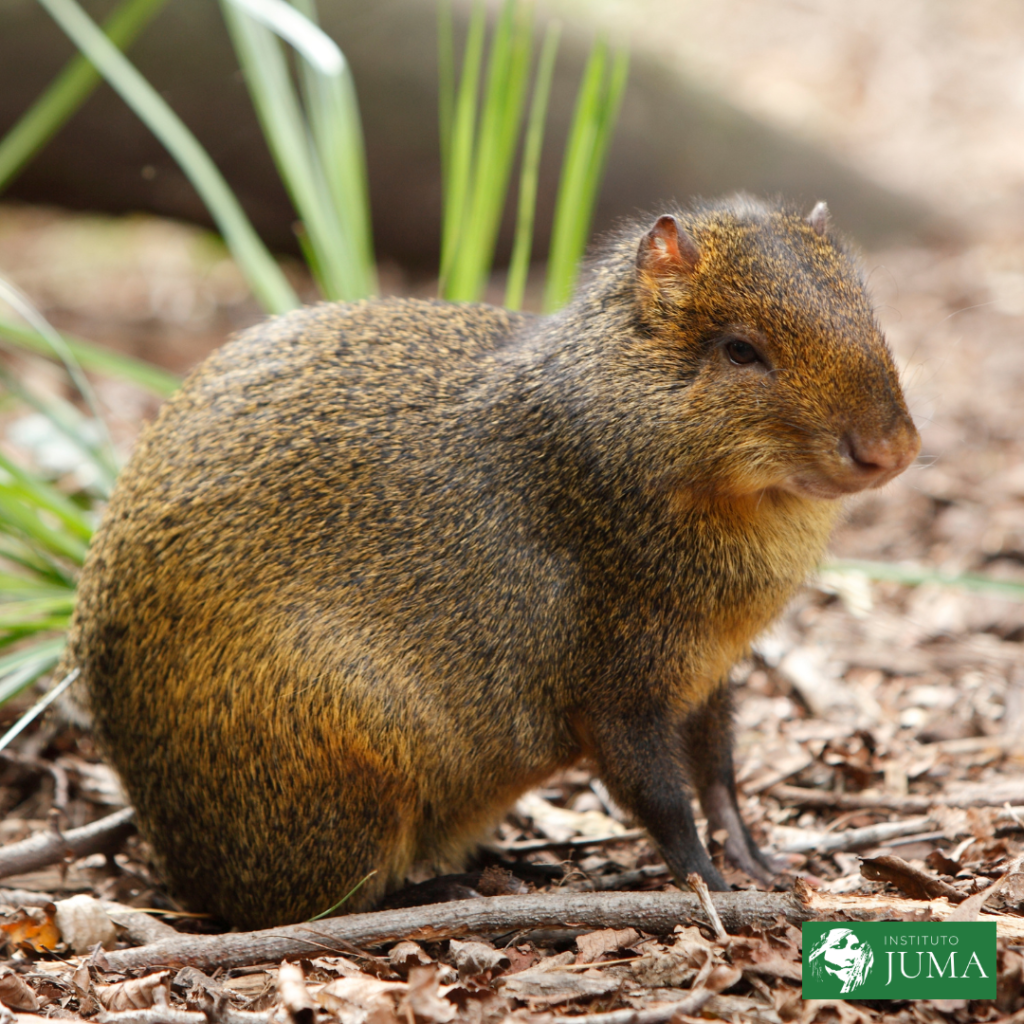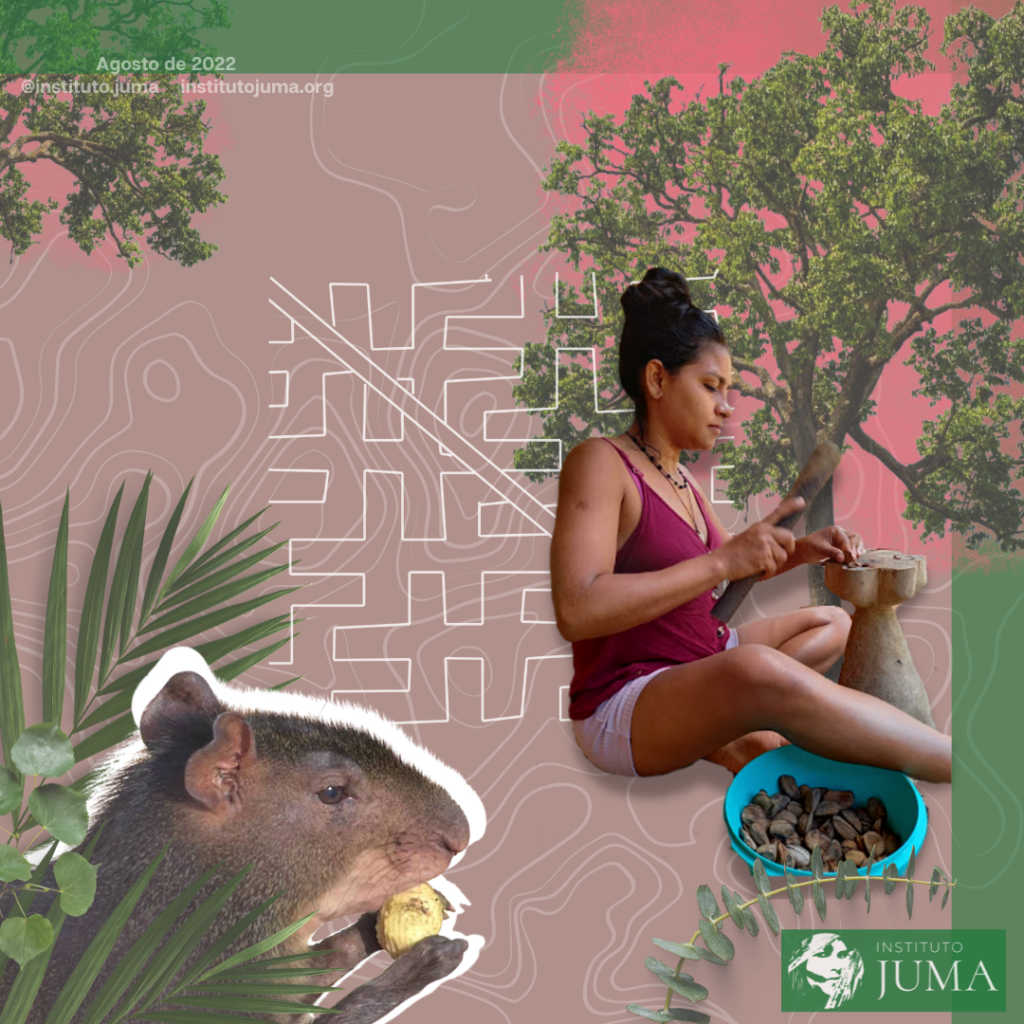The agouti and Brazil nut trees
The Agouti, a small and agile rodent, is one of those responsible for the dispersion of Brazil nut trees in forests. The Brazil nut tree (Bertholletia excelsa) is a native Amazon tree, and it is threatened with extinction in Brazil due to deforestation. The agoutis gnaw the fruit that falls from the trees until the seed pods open, eat some of the seeds and bury the others to eat later. But they can’t find all the seeds they buried, which end up germinating, giving rise to new Brazil nut trees! The seeds forgotten by the agoutis will sprout from the earth the following year to start the 500 years of life of a new Brazil nut tree.
Brazil nut is part of the indigenous and riverine daily life of the Amazon region, being used mainly as a source of food, since it can be consumed pure, or be added chopped or ground in doughs for cookies and cakes. Paru/Manzape, a type of traditional indigenous cake made with cassava, coconut and Brazil nuts, where this dough is placed on a banana leaf, “wrapped” and put to bake. In addition, it can also be consumed by extracting milk from the chestnut, which can be consumed with other foods, and can even replace conventional milk, or be used to season salads, directly contributing to the good nutrition of people considering its vitamins and its high nutritional value.
Among other uses of the chestnut, the oil can be extracted and help in the hydration and nutrition of the hair, as well as the skin. With regard to medicinal use, chestnut bark tea helps in problems that affect the liver, while the tea prepared in the chestnut nut helps with intestinal problems, anemia and even hepatitis. Finally, the nut shell can also be used to make decorative, and traditional indigenous handicrafts and to replace the conventional Maracá (hand rattle), turning into a rattle when small seeds are added inside the shells, which are usually tied, emitting sounds for traditional indigenous music and dances.
#amazônia #amazonrainforest #biodiversidade #biodiversity #castanhadopara #cutia



